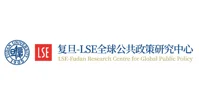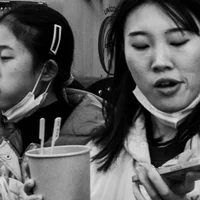News

Latest news, funding opportunities and joint project information from both Global Public Policy Hub and the Centre for Global Public Policy are available below.

The Future of Philanthropy in China: Strategic Insights for the Sector
China’s philanthropic sector stands at a critical juncture. While digital giving platforms have achieved unprecedented scale and sophistication, fundamental challenges are emerging: wealthy donors are moving assets abroad rather than giving domestically, young people are not converting digital access into actual philanthropy, and stakeholders hold divergent, sometimes contradictory, views about what the sector is ultimately for.
This brief written by Reza Hasmath and Timothy Hildebrandt, synthesizes key takeaways from a symposium held from 1-2 November 2025, that brought together leading scholars to examine how policy frameworks, organizational networks and cultural forces are reshaping Chinese philanthropy.

Call for Papers: the 4th LSE-Fudan Annual Conference on Global Public Policy
We are pleased to announce the 4th LSE-Fudan annual conference on Global Public Policy, which will take place in London on 6-7 November 2025. This year’s conference will focus on the theme of AI for Global Good. This interdisciplinary gathering will explore how artificial intelligence and digital technologies can be harnessed to address pressing global challenges while examining the policy frameworks needed to ensure equitable and sustainable outcomes.
Find out more about the event Here.

Systemic and Creative Adaptation: A Frontier for Resilient Cities
Session | Royal Geographical Society (RGS) Annual Conference 2025
A session titled ‘Systemic and Creative Adaptation: A Frontier for Resilient Cities’ led by Dr Deshpande has been accepted for the RGS-IBG Annual Conference 2025. The conference, hosted by the University of Birmingham, UK will be from the 27-29 August 2025, and the Systemic and Creative Adaptation session will be held on the 29thof August 2025.
The session brings together six early career scholars based in UK universities to share their former and/or on-going research on urban governance issues and mechanisms from diverse countries of South Asia. The panel will present new insights on governing South Asian cities with an intention to influence global urban discourses. As part of the panel, Dr Deshpande will share her work on ‘Endogenising urban climate governance: the influence of local ideas and actors from South Asia’. This is a unique opportunity for South Asian scholars to share their research on a global platform and explore potential for future research collaborations.

2025 "Global Public Policy" International Summer School Applications Are Now Open!
The LSE-Fudan Research Centre for Global Public Policy and the Fudan Institute for Global Public Policy jointly launch the second 'Global Public Policy' International Summer School. The Summer School brings together brilliant scholars and professionals from around the world, offers high-quality credit-bearing courses on the themes of 'Global Public Policy' and 'China and the World', and provides students with the best opportunity to study these subjects.
We welcome Students from all over the world to join the summer school for an exciting journey of global public policy in Shanghai in the summer of 2025! More information, including programme, courses, application process and fees etc. is available Here.

LSE Festival Premieres Two New Films Exploring Chinese Perspectives on the World
The will present two new films at the event "Understanding China's Views of the World" on Wednesday, 12 June 2024, from 6:00 pm to 8:00 pm: Elena Barabantseva’s British Born Chinese: Ten Years On(30 min) and William A. Callahan’s The Nose Knows(15 min). These films challenge stereotypes by offering a nuanced portrayal of UK and global dynamics, delving into personal experiences, foreign policy agendas, and artistic expressions from diverse Chinese perspectives.
Following the screenings, a panel discussion will delve into the visual impact and political implications of Chinese engagement with the UK and the world on local, national, and global scales. It will also explore how such perspectives influence elections in the UK, USA, the EU, India, and Russia.
Find out more about the event here.

Two events hosted by IGPP and NAPA Collaboration on International Climate Adaptation Research
The Institute of Global Public Policy(IGPP) and the National Academy of Public Administration(NAPA) have cosponsored an international research project focusing on climate impacts and local adaptation. Led by Prof. Dan Guttman, Fellow of the National Academy of Public Administration and Adjunct Professor at IGPP Fudan University, the project brings together scholars from China, the US, and Australia.
The project's first report is available here.
Now, the initiative is gearing up for its second stage, seeking to broaden its scope by involving scholars from diverse regions, particularly Africa.
To kickstart this phase, two events are scheduled this week:
1. On April 23 (2pm UK time | 9pm China time), Prof. Dan Guttman will deliver a lecture discussing the initial report's findings.
2. On April 24 (2pm UK time | 9pm China time), Prof. Dan Guttman will host a webinar to outline the project's next steps, welcoming input from existing team members and inviting new scholars to contribute their ideas.
All interested individuals are encouraged to attend. Scholars from African countries are particularly encouraged to participate, as their insights will be invaluable in enriching the project's framework. If you wish to participate, please access all event details and links here.

Tanvi Deshpande Presents Research on Urban Climate Action Plans in the Global South
Dr Tanvi Deshpande, a research fellow at LSE Fudan Global Public Policy Hub, shared insights on urban climate action plans in the Global South during the Sustainable Development/Adaptation Discussion organised by the Grantham Research Institute on Climate Change and the Environmentat the LSE. Her presentation on the topic "Urban climate action plans in the Global South: institutional responses against climate change" focused on urban climate ‘policy’ responses adopted by cities in the Global South, addressing their challenges amidst rapid urbanisation and climate crises.
Despande highlighted the increasing adoption of comprehensive climate policy responses post-2015 Paris Agreement, emphasising the role of norm setters like C40 Cities and ICLEI, aiming to uncover why and how global climate frameworks are developed and whether they represent the needs of the Global South. Her research aims to bridge gaps between global frameworks and local needs, focusing on climate justice. The discussion underscored the vital role of urban institutions in shaping climate policies and fostering sustainable development agendas. You can read more about Dr Tanvi Deshpande’s work here.

New Inter-Asia Seminar Series Launches at LSE
The London School of Economics and Political Science is launching the Inter-Asia Seminar Series, a pioneering initiative to promote inter-Asia dialogues on key regional affairs. Hosted by the Saw Swee Hock Southeast Asia Centre, this series is co-convened by distinguished faculty members including Professor Chun Lin from the Department of Government, Professor Bingchun Meng from the Department of Media and Communications, and Professor Hyun Bang Shin from the Department of Geography and Environment.
The inaugural event, titled "Cold War and Asia: Modernity," is scheduled for Wednesday 27 March at 12:00pm-1:15pm. Participants will have the opportunity to explore the impact of the Cold War on Asia's modernisation and its enduring legacies.
You can register for the event here: Inter-Asia Seminar Series: Cold War and Asia: Modernity.
Stay tuned for more enlightening discussions in the upcoming seminars.

2024 "Global Public Policy" International Summer School Applications Are Now Open!
The 2024 "Global Public Policy" International Summer School, Co-hosted by the LSE-Fudan Research Centre for Global Public Policy and the Fudan Institute for Global Public Policy, is now open for application. The summer school brings together brilliant scholars and professionals from around the world, offers high-quality credit-bearing courses on the themes of 'Global Public Policy' and 'China and the World', and provides students with the best opportunity to study these subjects.
Students, young scholars and professionals are all welcome to join the summer school for an exciting journey of global public policy in Shanghai in the summer of 2024! More information, including programme, courses, application process and fees etc. is available here.

Call for Applications
The 2023 LSE-Fudan Research Centre for Global Public Policy Seed Funds is open for applications. It accepts applications involving academics from Fudan University and the LSE to support academic research collaborations between the two universities. Further information can be found here. Please fill out the application form here.








